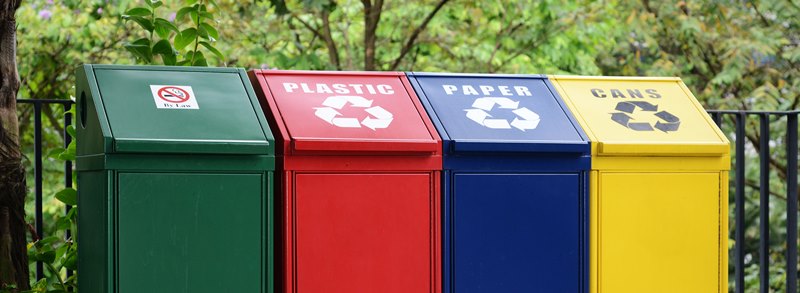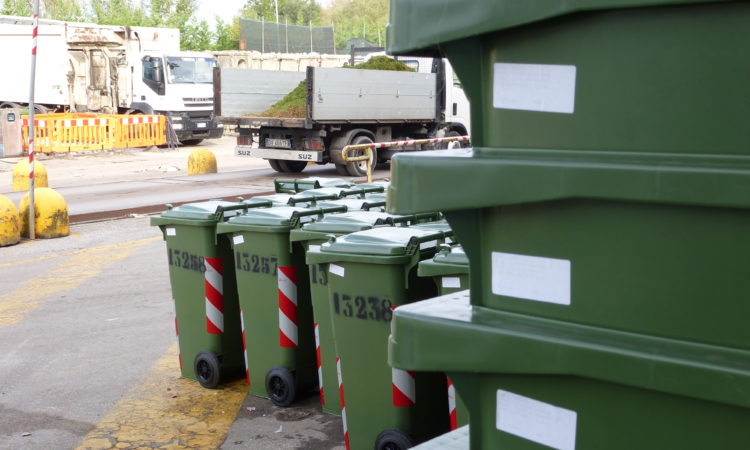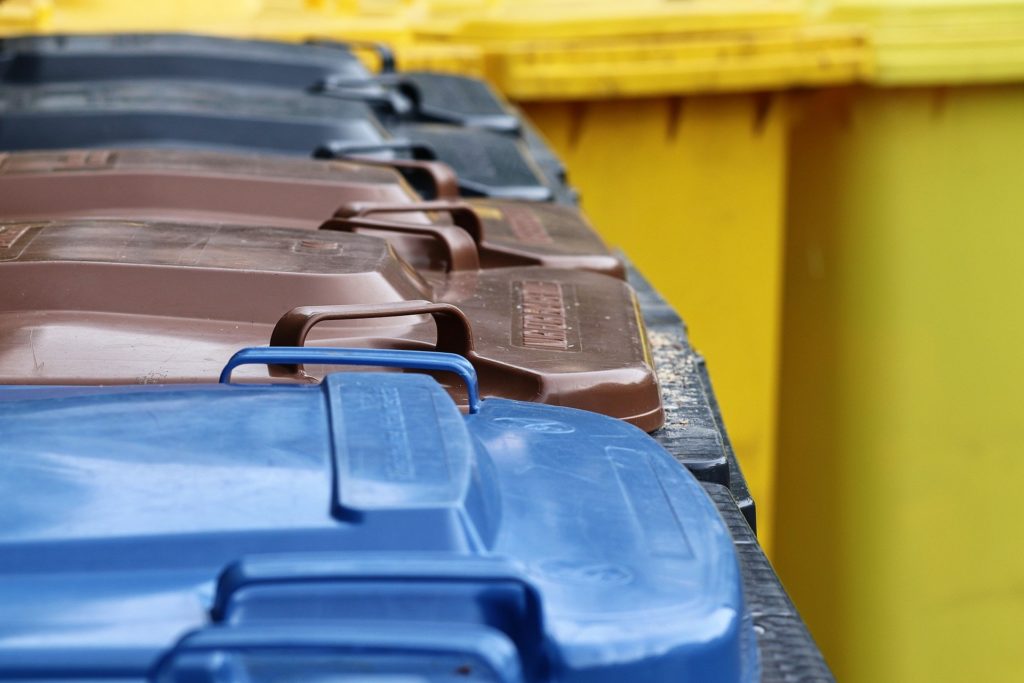
RFID in Waste Management
Waste management is a sector facing increasingly complex challenges, from the need to improve operational efficiency to growing environmental awareness. In this context, RFID (Radio-Frequency Identification) technology emerges as a revolutionary solution capable of transforming the way waste is collected, monitored, and disposed of. For those unfamiliar with the basics of RFID technology, we invite you to visit our introductory page, where we provide a detailed overview of how it works and its general applications.
RFID allows for the automation and optimization of many waste management operations, offering precise, real-time traceability. By using RFID tags applied to containers and RFID readers installed on collection vehicles, detailed data can be obtained on each stage of the process, thus improving transparency and efficiency.
On this page, we will explore how RFID technology is implemented in the waste management sector, analyzing its various applications, tangible benefits, and success stories. You will discover how RFID can help create a more sustainable, efficient, and safe waste management system, meeting the needs of modern businesses and communities.
RFID Applications in Waste Management
Container Monitoring
One of the main applications of RFID in waste tracking is container monitoring. RFID tags applied to bins allow for real-time tracking of their location and status. This system enables operators to know exactly when and where containers need to be emptied, optimizing collection vehicle routes and thus reducing operational costs and environmental impact.
RFID for Waste Sorting
RFID-based waste sorting significantly improves the process of separating waste. Through the use of RFID tags, it is possible to monitor correct waste disposal by citizens. Each waste sorting container is equipped with an RFID tag that is read by collection vehicles, recording the type and quantity of waste collected. This data can be used to incentivize responsible behaviors and apply charges based on the amount of waste produced.
Hazardous Waste Management
The use of RFID for hazardous waste is crucial to ensure safety and compliance with environmental regulations. RFID tags applied to hazardous waste containers allow precise monitoring of their movement and disposal. This system reduces the risk of improper handling and ensures that hazardous waste is treated according to current regulations, preventing accidents and environmental contamination.
RFID System for Waste Management
An RFID system for waste management integrates various technological components to create a complete and automated solution. This system includes RFID tags, RFID readers, and management software. The RFID readers installed on collection vehicles read the tags applied to containers, transmitting the data to a central software system. The software analyzes this data to optimize collection routes, monitor container fill levels, and generate detailed reports on waste management. This approach increases operational efficiency, reduces costs, and improves environmental sustainability.
Advanced Applications
In addition to hazardous waste management, RFID technology is also used for electronic waste management, reverse logistics optimization, and the creation of pay-as-you-throw systems based on the amount of waste produced. These advanced applications demonstrate the potential of RFID to revolutionize the waste management sector, offering innovative and sustainable solutions to future environmental challenges.
By implementing these technologies, companies and public administrations can significantly improve waste management, contributing to cleaner and more sustainable cities.
RFID and Pay-As-You-Throw (PAYT)
As part of initiatives to promote sustainability and ecology, Pay-As-You-Throw (PAYT) has emerged as a revolutionary tool. PAYT is a tariff system based on the principle "the more you recycle, the less you pay," aiming to incentivize waste reduction and accurate recycling by both citizens and businesses.
RFID technology plays a crucial role in this context. Through the use of RFID tags applied to waste containers, it is possible to accurately measure the amount of waste generated by each user. This detailed measurement allows PAYT to be applied in a fair and transparent way, ensuring that each taxpayer pays exactly according to the amount of waste they produce.
The introduction of PAYT, supported by RFID technology, not only makes waste taxation fairer but also promotes greater environmental awareness. Users are encouraged to reduce waste at the source and improve their disposal and recycling habits. Additionally, the data collected through the RFID system can provide valuable insights for further environmental policies and to refine local waste management strategies.
The effectiveness of PAYT and its positive impact on both the economy and the environment are further explored on the dedicated page, where you can find detailed insights and success stories.
Benefits of RFID Technology in Waste Management
The implementation of RFID technology in waste management offers numerous advantages that significantly enhance operational efficiency, transparency, and environmental sustainability. Let's take a closer look at the main benefits.
Operational Efficiency
The use of RFID waste management automates many operations that previously required manual intervention. Thanks to RFID tags applied to containers, collection vehicles can automatically identify and record the waste collected without the need for manual scanning. This reduces operational times and allows the optimization of collection routes, decreasing fuel consumption and CO2 emissions. Additionally, real-time monitoring of container fill levels prevents unnecessary collections, focusing only on full containers.
Transparency and Traceability
RFID waste tracking guarantees complete transparency throughout the entire waste management chain. Each container equipped with an RFID tag transmits detailed information about the type of waste, its quantity, and the route it follows to the disposal point. This level of detail allows companies and administrations to precisely monitor waste flows, identify inefficiencies or anomalies, and continuously improve management processes. Furthermore, the traceability of hazardous waste ensures that it is handled according to regulations, reducing the risk of environmental contamination and legal issues.
Environmental Sustainability
Adopting an RFID system for waste management significantly contributes to environmental sustainability. The ability to monitor and optimize collection routes reduces fuel consumption and greenhouse gas emissions. Additionally, RFID-based waste sorting encourages citizens to correctly separate waste, increasing recycling rates and reducing the amount of waste sent to landfills. This approach not only decreases the environmental impact but also promotes a culture of responsibility and sustainability.
Cost Reduction
Another important benefit of RFID for hazardous and non-hazardous waste is the significant reduction in operational costs. The automation and optimization of collection and disposal processes reduce the need for labor and the costs associated with manual management. Additionally, reduced fuel consumption and increased operational efficiency contribute to lowering overall waste management costs. Companies can then reinvest these savings into other strategic areas, further improving their services and operations.
Improved Service Quality
Finally, implementing an RFID system for waste management improves the quality of service offered to citizens. The ability to track and monitor waste in real time enables a quick response to community needs, promptly addressing any issues or service disruptions. Additionally, the data collected can be used to educate and raise awareness among citizens about the importance of waste sorting and responsible waste management, promoting more sustainable behaviors.
In conclusion, RFID technology offers a range of tangible benefits for waste management, contributing to a more efficient, transparent, and sustainable system. Companies and administrations that adopt these innovative solutions can achieve significant operational and environmental improvements, meeting the challenges of modern waste management.
Case Studies and Success Stories in Italy
The adoption of RFID technology in waste management has led to numerous successes in various Italian municipalities. Let's look at some concrete examples of how RFID implementation has transformed collection and disposal operations, bringing significant benefits.
Case Study 1: Milan
In Milan, the implementation of RFID tracking has improved the efficiency of waste sorting. RFID tags applied to containers monitor the amount of waste collected and optimize the routes of collection vehicles. This system has reduced operational times and helped lower CO2 emissions while improving the service offered to citizens. The data collected allows AMSA to monitor the performance of various neighborhoods and encourage virtuous behavior among residents.
Case Study 2: Parma
Parma is a prime example of how using RFID tags for waste sorting can increase recycling rates. The municipality has equipped bins with RFID tags, enabling precise waste tracking. This system encourages citizens to properly separate waste, leading to a significant increase in recycling rates and a reduction in waste sent to landfills. Additionally, the data collected is used to apply charges proportional to the amount of non-recycled waste, further incentivizing eco-friendly behavior.
Case Study 3: Bologna
In Bologna, RFID has been implemented to improve the management of medical waste produced by hospitals and clinics. RFID tags applied to medical waste containers allow real-time monitoring of their movement and disposal. This system has increased safety and compliance with regulations, reducing the risk of contamination and improving the traceability of hazardous waste.
Case Study 4: Florence
Florence has adopted an RFID system to optimize urban waste collection. RFID-equipped containers are read by collection vehicles, transmitting the data to central software. This has allowed for the optimization of collection routes and a reduction in operational costs. The system has also improved service quality, enabling more responsive and personalized waste management based on citizen needs.
Case Study 5: Turin
In Turin, the use of RFID has been extended to industrial waste management. RFID tags are used to monitor waste containers produced by local industries, ensuring precise and compliant tracking. This system has improved the safety of disposal operations and reduced the risk of improper handling, contributing to more responsible industrial waste management.
Conclusion
The implementation of RFID technology in waste management represents an innovative and versatile solution capable of addressing the complex operational and environmental challenges of the sector. Through the use of RFID tags, readers, and advanced management software, significant improvements can be achieved in terms of efficiency, transparency, sustainability, and cost reduction.
We have explored how RFID waste management can optimize every stage of the process, from waste sorting to hazardous waste tracking, integration with existing systems, and the adoption of tailored solutions. The case studies from various Italian municipalities demonstrate the tangible benefits derived from using this technology, with positive results in terms of CO2 emissions reduction, increased recycling rates, and improved service quality for citizens.
For more information or personalized consulting, do not hesitate to contact us. Discover how our RFID solutions can transform your waste management, bringing tangible benefits and contributing to a cleaner and more sustainable future.







